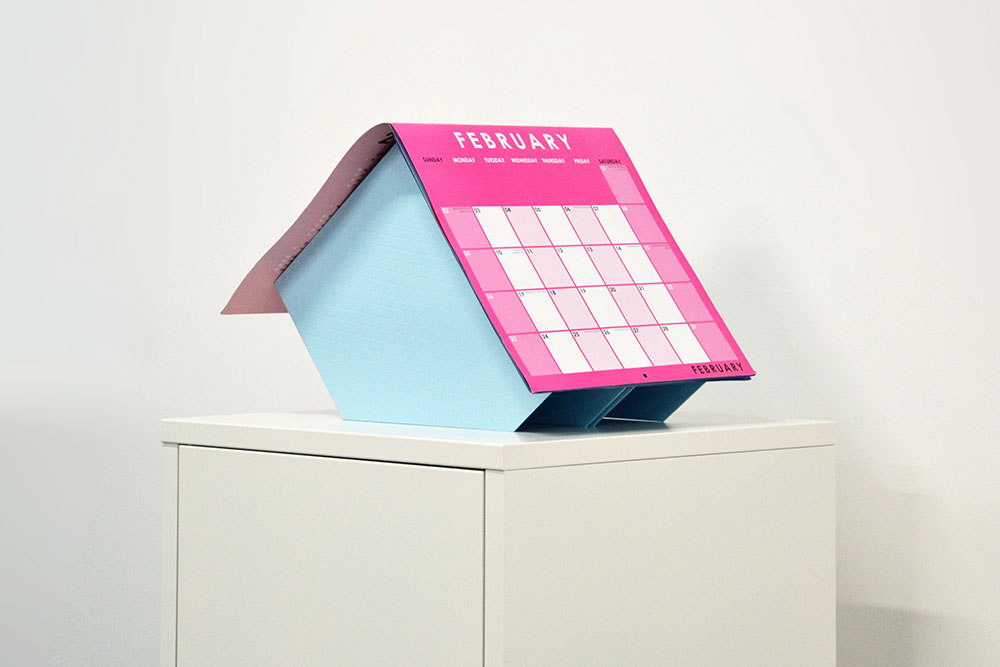
Laurel Parker Book has the pleasure to present the solo exhibition of Sara MacKillop at their
gallery at Komunuma in Romainville. This exhibition is the continuation of a collaboration since
2018 between our publishing house and the Bristish artist.
'Though consistent with Sara MacKillop's long standing practice of repurposing stationery as an art
material, her new sculptures speak to and about the specific time of their creation. Crafted in 2020,
during the Covid lock down, they employ a selection of cardboard file holders and wall calendars to
fashion a series of semi-architectural models, each suggesting a different sketch for a detached or
semi-detached holiday home. When grouped together, the sculptures appear as ingenious prototypes
for the various options available for new homes in a luxury mountain resort as yet to be built.
Created within the confines of MacKillop's flat, simply paring things easily available at her local
stationery shop, and flat-packable for shipping, the sculptures suggest an easy-going, playful approach
to making art. The artist's long standing interest in the visual languages through which firms creating
office supplies endeavour to lure their customers toward a particular item, such as a pink cardboard
file holder, or a wall calendar adorned with images of wild horses, is harnessed to create an
architecture of play and leisure.
But exactly through their playfulness, these faux-architectural sculptures offer a reflection on a
fundamental contradiction of our present times: the demand for our daily work-space and our free
time play-space to be absolutely separate and yet perfectly folded into each other.
The skiing retreat to which they refer is one, if not the contemporary play-space. It promises luxury,
cozy seclusion, healthy air, outdoor freedom, and pristine cleanliness. It stands for a life and a time
that are fundamentally different form the ones of our work life. Yet as MacKillop's work wryly
suggests, play-space and work-space are not so easily separated. These small buildings are made of
the materials of daily work, their play-space is that described on the office calendars that regulate
the workers? life, their tiled walls ignore the slant of the roof allowing the aesthetic indifference that
produced the appropriated folder to shine through, their lapidary solidity is ersatz, their scanning
codes are visible..."
Grégorio MAGNANI